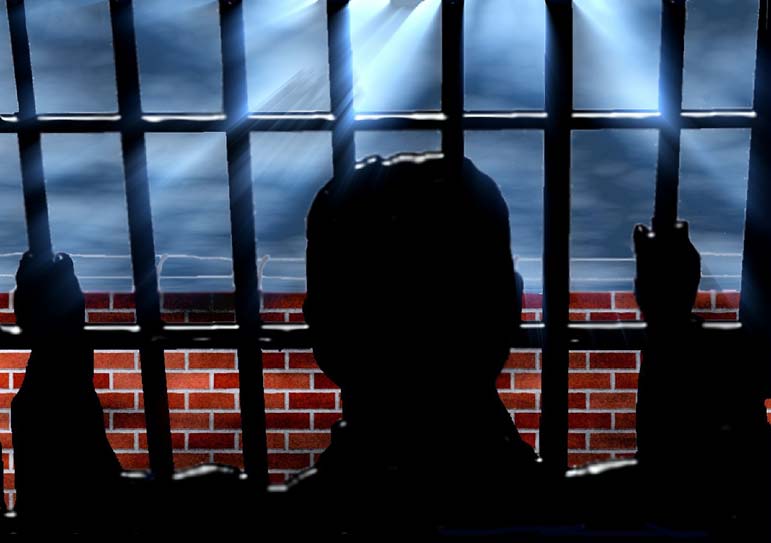Shame has its limits, even in Chicago, so there was no way that R. Kelly -- famous R&B singer and infamous accused pedophile -- was going to get the cozy Jussie Smollett treatment.
Not in federal court. And not after Kelly's recent federal indictments in Chicago and New York on charges that he pressured witnesses to change their stories years ago in his Cook County criminal case, and that he paid hundreds of thousands of dollars to scoop up child sex tapes in which he had a starring role.
"This investigation is far from over," Assistant U.S. Attorney Angel Krull said as Kelly's bond was denied on Tuesday. Krull also said prosecutors have three videos showing Kelly's "sadomasochistic abuse" of a 14-year-old girl.
The indictments against Kelly came just days after the underage sex trafficking indictments against New York financier Jeffrey Epstein. That wasn't just happenstance, said Jim DeRogatis, music critic, professor, journalist and author of the extensively reported "Soulless: The Case against R. Kelly."
"What's obvious now is that it takes a system of people to enable a predator to do his thing for years, for decades," DeRogatis said on my podcast "The Chicago Way" on WGN Plus. "This is not a coincidence that the charges came within a span of a week, against Epstein and Kelly."
In both cases, it's clear that there were industrious enablers helping predators on their hunt. It takes a village.
The monstrous Roman Polanski liked young girls too. He gave a 13-year-old girl a quaalude and champagne, then raped her in the home of Jack Nicholson. But he was a great director, and Hollywood defended him, giving him standing ovations and awards in absentia. He stayed overseas rather than go to prison in California.
"Hollywood has the best moral compass because it has compassion," said one of Polanski's great champions. "We were the people who did the fundraising telethon for the victims of 9/11. We were there for the victims of Katrina and any world catastrophe."
Who was the great Polanski supporter? Producer Harvey Weinstein, who goes on trial in New York after Labor Day as an accused sex predator.
Hollywood, the music industry and politics are each all about selling fantasy, and what we find acceptable in fantasy reveals much about us. In the late 1980s, two movies based on the same story about decadent French nobility -- each containing scenes of rape of a 15-year-old girl by an older man -- were big hits in America, "Dangerous Liaisons" and "Valmont." Would such scenes be made today? Or is modern America so much like pre-revolutionary France that we've lost perspective?
While Epstein was a favorite of the wealthy New York elite, numbering former President Bill Clinton, other national Democrats and Republican President Donald Trump among his social contacts, Kelly was a Chicago guy.
He grew up here. He soon became the most influential musician of his generation. And as Kelly became famous for his music, he became famous for being a grown man hunting 14- and 15-year-old girls. And Chicago knew it.
"There was Kelly cruising Kenwood Academy, and other high schools, the Evergreen Plaza shopping malls, the Rock 'n' Roll McDonald's," DeRogatis said. "Nobody cared to stop it because the money was too extensive."
DeRogatis tried. Then-music critic at the Sun-Times, he teamed up with then-Sun-Times reporter Abdon Pallasch to document Kelly's behavior beginning in December 2000. They did story after story, yet these were largely ignored by other media in town, including the Chicago Tribune. Kelly was considered a Sun-Times story. And DeRogatis and Pallasch were isolated.
They were supported by Chicago Sun-Times columnist Mary Mitchell, an African American, who wrote many columns defending them.
"We were vilified in all of Chicago black media, especially the radio stations, they never stopped playing him," DeRogatis recalled. "We were (called) racists, and Mary wrote more than two dozen columns urging the black community to wake up to the predator in its midst."
Later, Pallasch told me, "When we published our first story about R. Kelly sexually abusing underage teenage girls, we braced for a wave of other news outlets following up and covering this. And we were met with a collective shrug from our fellow journalists. This was before the #MeToo movement. We got, 'What? It's news that music stars go for young girls?'
"But it would be years before some of our fellow journalists recognized that video of R. Kelly sexually abusing a 14-year-old girl was not 'the pee tape' but rather 'the rape tape,'" Pallasch said.
Some things to watch as both the Kelly and Epstein cases proceed: How many enablers will be revealed, in politics and media? How will the politics of the local courts -- R. Kelly's acquittal in Cook County and the slap-on-the-wrist Epstein received in Florida -- be explained away? And how did the lawyers on both sides play those earlier cases, which authorities now say allowed accused child molesters to resume hunting?
DeRogatis said much will be exposed about Cook County and Kelly as the federal case unfolds.
"Because the indictment already brings out that the girl and her parents were bribed. And there are obstruction of justice charges," he said on "The Chicago Way." "How far will these charges go? And when Kelly's enablers begin to flip and turn state's evidence to avoid prosecution themselves, what else will come out?"
I don't think it'll be the kind of tune you'd want for your wedding song or your prom. There might be a silent scream or two, maybe, and a sigh.
But it won't be music.
Sign up for the daily JWR update. It's free. Just click here.
(COMMENT, BELOW)
John Kass is a columnist for the Chicago Tribune who also hosts a radio show on WLS-AM.



 Contact The Editor
Contact The Editor
 Articles By This Author
Articles By This Author